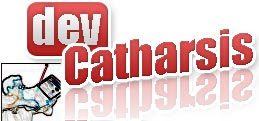Unverified designs, assumptions and tradeoffs increase the risks that software architecture doesn't meet expectations and costs significantly higher than projected. Ultimately they can cause projects to fail. This realization is prompting an increasing number of companies to consider assessing the quality of their software architectures. While architecture evaluation is not as widely used as it should be, some do try it. A few succeed, while others discover that they are not well prepared to do it. Many architecture evaluations are fixated on technology. While answering questions such as "Should the architecture use .NET or J2EE?" "Is the communication asynchronous or does it employ polling?" and "Does an XML versioning scheme exist?" can detect potential problems, there's more to architecture evaluation than technology alone.
In this presentation, recorded at JAOO 2006, Dragos Manolescu shares insights he gained from growing ThoughtWorks' architecture evaluation practice and evaluating several architectures for Global 1000 companies. These insights aim at preparing people interested in commissioning, managing, performing, participating in, or analyzing the results of architecture evaluation to tackle the realities of the front line.
Watch Architecture Evaluation in Practice (43 min)
in:
infoq.com


No comments:
Post a Comment